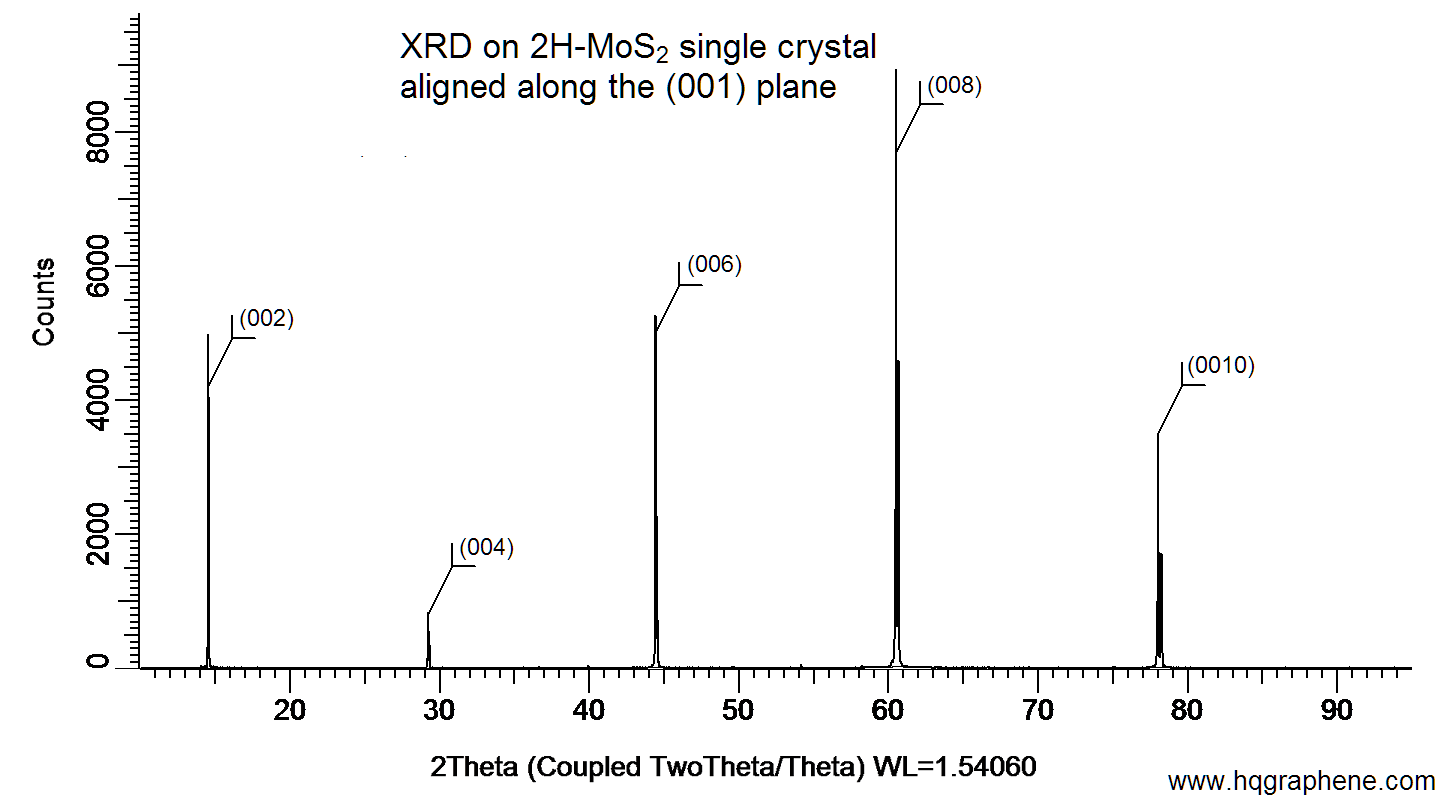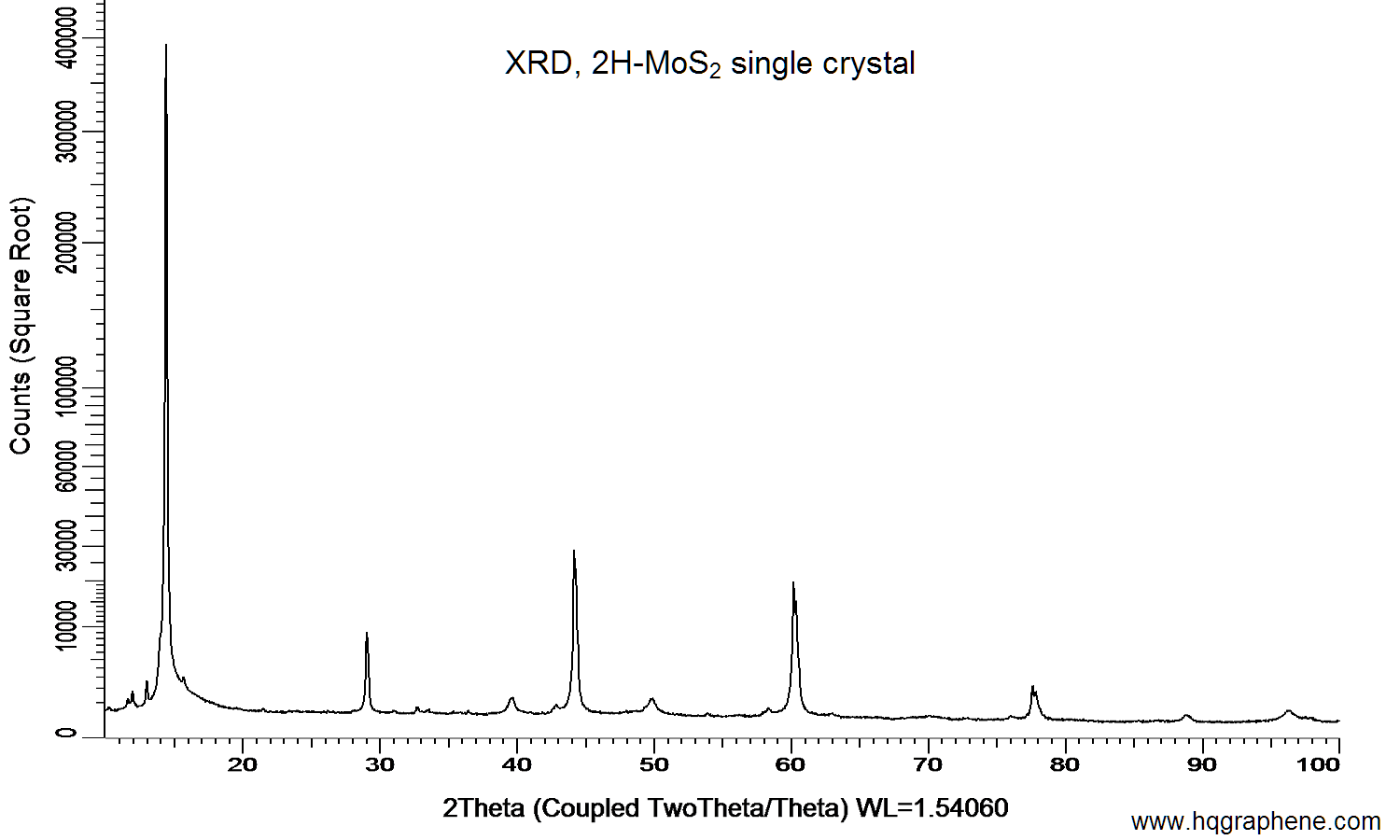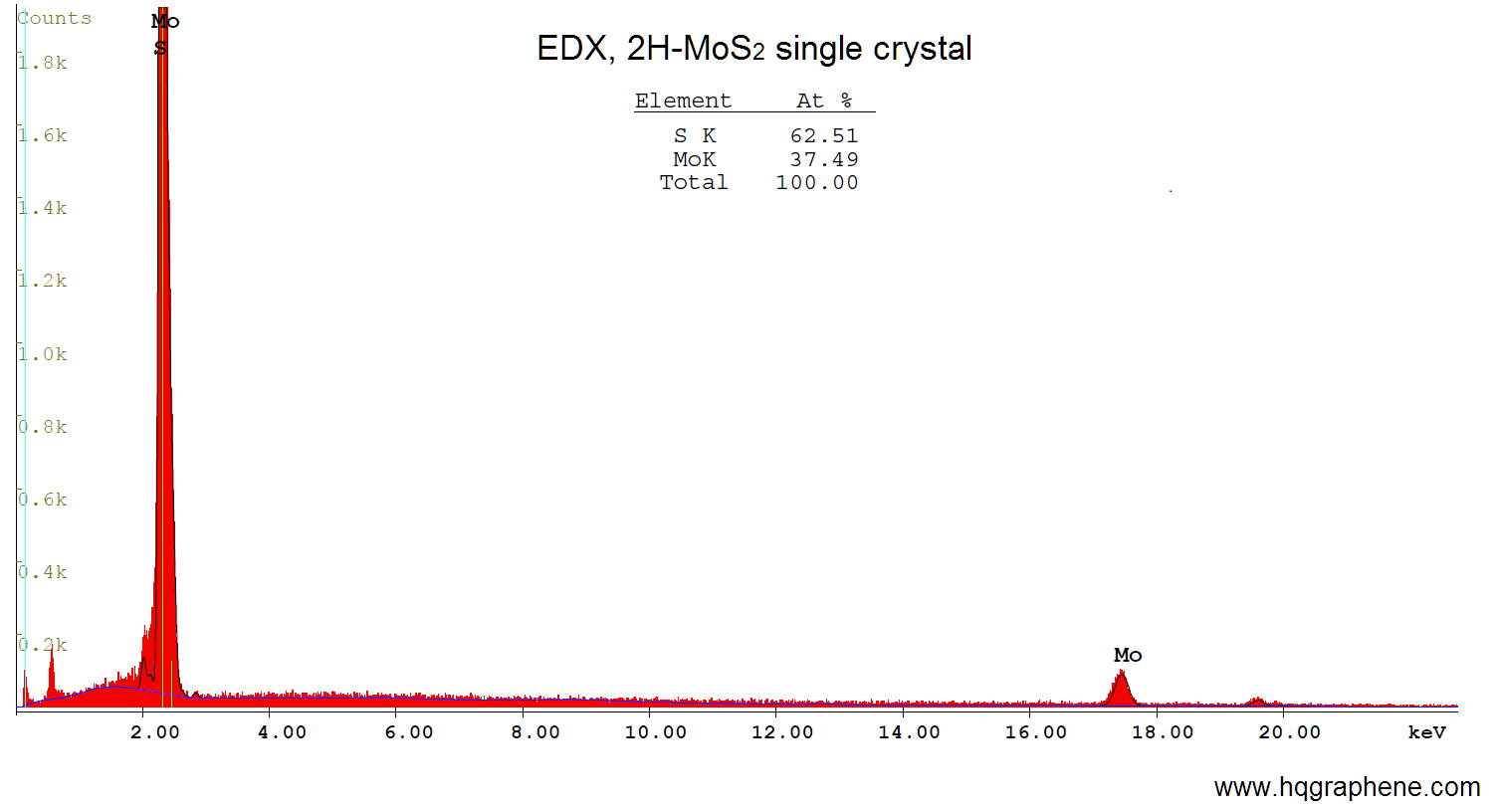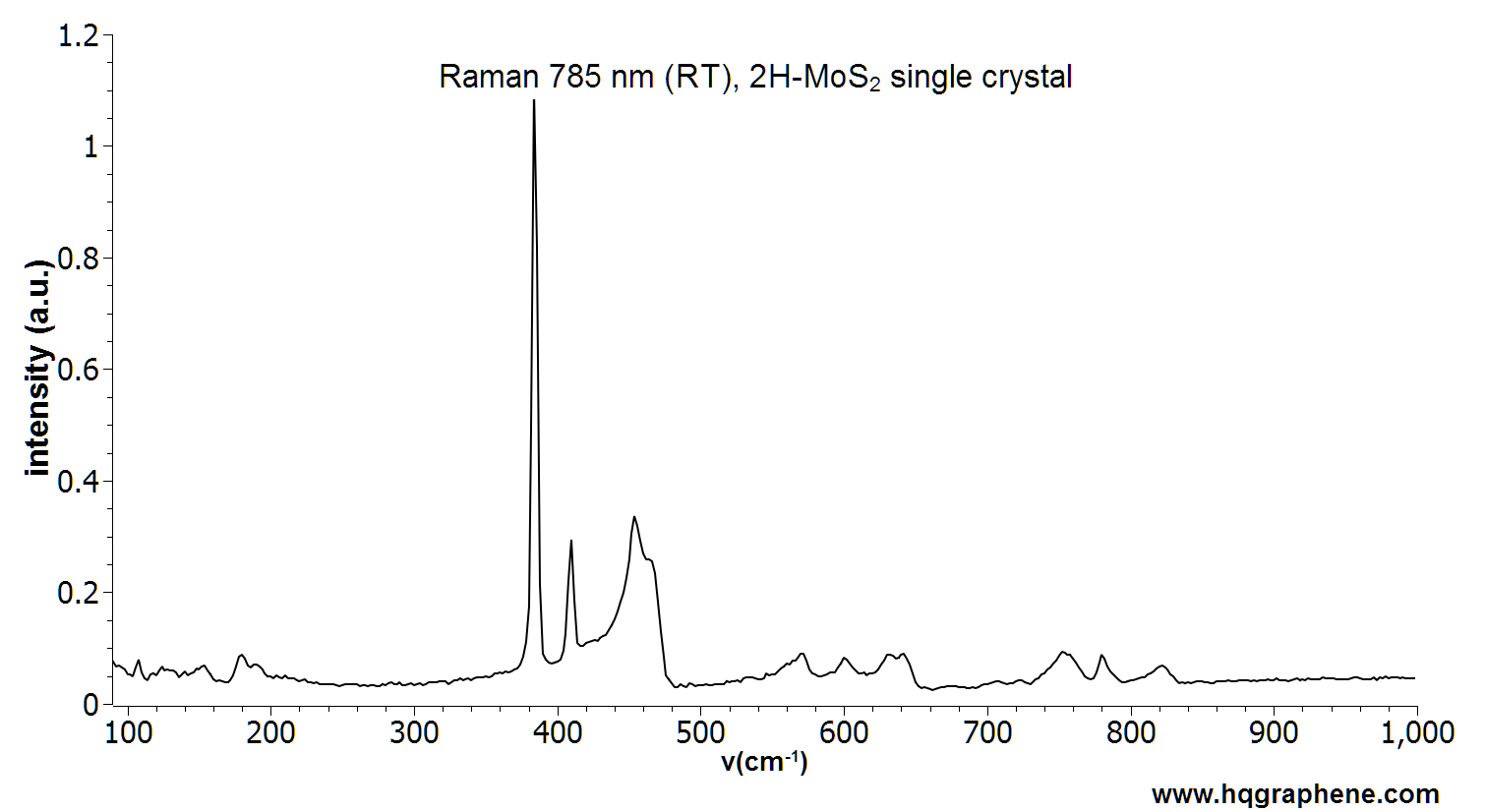MoS2 (2H Molybdenum Disulfide)
MoS2 (2H phase) is a semiconductor with an indirect band gap of 1.2 eV. Monolayer MoS2 has a band gap of ~1.8 eV. Molybdenum Disulfide is used for example as a photodetector and transistor. The layers are stacked together via van der Waals interactions and can be exfoliated into thin 2D layers. MoS2 belongs to the group-VI transition metal dichalcogenides (TMDC).
To buy MoS2 crystals please click here.
The 2H phase MoS2 crystals produced at HQ Graphene have a typical lateral size of ~0.8-1 cm, hexagonal/rectangular shaped and have a metallic appearance.
We produce both n-type and p-type MoS2, having a typical charge carrier density of ~1015cm-3 at room temperature.
A selection of peer review publications on the MoS2 crystals we sell can be found below.
| Crystal size | ~10 mm |
| Electrical properties | Semiconductor, n-type (p-type is also available) |
| Crystal structure | hexagonal |
| Unit cell parameters | a = b = 0.315 nm, c = 1.229 nm, α = β = 90°, γ = 120° |
| Monolayer properties | |
| Type | Synthetic |
| Purity | >99.995 % |
| Characterized by | XRD, Raman, EDX, Hall measurement |
| More information? | Please contact us by email or phone |
The single crystal MoS2 is characterized using:
XRD: single crystal and powder X-ray diffraction (D8 Venture Bruker and D8 Advance Bruker)EDX: Energy-dispersive X-ray spectroscopy for stoichiometric analysis
Raman: 785 nm Raman system
Hall measurement: Extraction of charge carrier density and doping in the Van der Pauw geometry.
Raman, XRD and EDX on 2H MoS2:
Click on an image to zoom




HQ Graphene Wiki on:
2H-MoS2 (Molybdenum Disulfide)
1. Zhang, R., et al. "Realization of a non-markov chain in a single 2D mineral RRAM." Science Bulletin 66.16 (2021): 1634-1640.
2. Cho, C., et al. "Highly strain-tunable interlayer excitons in MoS2/WSe2 heterobilayers." Nano letters 21.9 (2021): 3956-3964.
3. Dardzinski, D.P. "Investigation of MoS2 with Ambient Pressure X-ray Photoelectron Spectroscopy." (2020).
4. Smirnova, O.O., et al. "Temperature activation of indirect exciton in nanostructures based on MoS2." Journal of Physics: Conference Series. Vol. 1482. No. 1. IOP Publishing, 2020.
